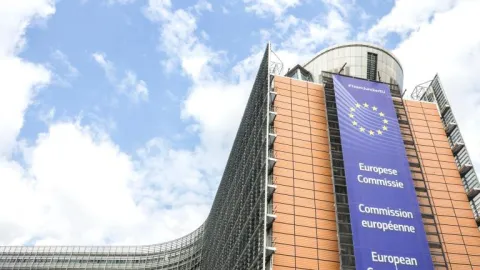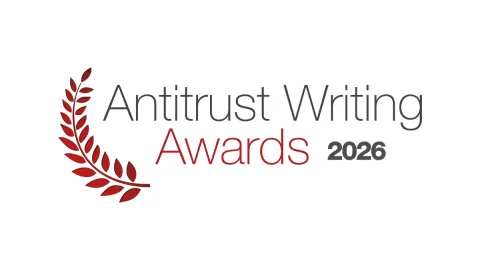Innovation and the ‘Revamping’ of Competition Law – Insights from the 3rd Early Career Scholars Conference in Florence
November 14, 2025
Over the hills of the City of the Renaissance, early career competition law scholars from around the world gathered from 6 – 7 November 2025 to revamp competition law within two days.
In this spirit, Nicolas Petit (EUI) kick started the conference with a keynote offering Europe a choice to do better and spear itself from decline – maybe against its soul? Petit at least challenges the idea of European integration as harmonisation being the guarantee for peace and prosperity. Less but better regulation is key. We as Europeans need to abandon those instruments that are not used or missing the regulatory aim. Specialized courts can provide better judgment by enhance abilities and knowledge. Instead of creating ever more institutions, we have to make existing ones better equipped and more efficient. More efficient institutional design also means to draw back on member states particularities, harmonise and reduce divergence. It is Europe’s “new” sovereignty. That’s where its soul should lay, that’s what sovereignty and prosperity for Europe means. It is not “fate” but “choice” to decline Petit said – and the time is now. The time has come for a Renaissance. In order for Europe to do better in terms of innovating technologies he introduced a new “Constitution of Innovation for Europe”, published the following Monday by an EUI-based research team.
After such strong advocacy for innovation and European prosperity, the first panel was on whether and how an “innovation defence” could be envisaged in merger control and was chaired by Thomas Thiede (Spieker&Jaeger/University of Graz), a long-standing supporter of the Early Career Scholars Conferences. The speakers presented diverging perspectives. The first paper, which was a qualitative empirical examination of Commission cases, was presented by Adrian Zadlo (University of Warsaw) and noted some facts from the Commission's decision-making practice. It was generally sceptical of introducing an innovation defence in merger law. By contrast, the second paper, presented by Mihai Viktor Puskas (Linklaters) framed an innovation defence as “the natural next step” in the evolution of merger enforcement. The discussion identified the use of innovation as a tool to prevent mergers (third parties) and as a defence mechanism. The term innovation itself, therefore, seems to have different meanings depending on the interests of the actors involved in making the statement. It stayed largely unanswered how such approaches connect to consumer welfare. Is fostering innovation the new “welfare” standard? Even though no merger has been closed so far on the grounds of “innovation”, some advocated for a change in the European Commission’s practice and the judicial review of the Courts. Such a paradigmatic shift though raises questions of legal security in terms of foreseeability of the European Commission’s practice.
The second panel concerned capabilities and was chaired by Selçukhan Ünekbaş (EUI). It comprised of three papers that all examined this concept from interesting angles. The first paper was by Julie Houillon-Leonis (Paris Pantheon-Assas University), who argued that capabilities can be used as an additional factor for market definition in innovation-intensive industries. Her paper used pharmaceuticals as a case study. First, the notion of capabilities, also based extensively on the management literature, was introduced and Houillon-Leonis then tried to find “insertion points” through which the concept can be incorporated into competition law. One key aspect of the presentation was whether the market definition could include a dynamic approach, allowing for the recognition of dynamic capabilities. The second paper was presented by Tom Logel (University of Strasbourg) and Leo Kubler (Freshfields). It concerned how state aid law contains readily available tools to help European firms build capabilities in the AI sphere. Those second presentation led to a nice discussion, specifically on whether state aid could be conceptualized as something more than "throwing more money at a problem". And finally, the third paper was presented by Martin Puthet (College of Europe) and Kevin Armand Laurent (Sciences Po Bordeaux). It explored how procurement law is “the missing link” in capability development in Europe. I especially liked their empirical approach: they've compiled a dataset on the extent to which contracting authorities in the EU use procurement to purchase innovative goods and services.
The second day began with a keynote by Jasminka Pecotic-Kaufman (University of Zagreb & EUI) on “the drivers of change”in competition law. Also in this keynote, scepticism raised as to the competitiveness of Europe in the race – say AI – with China and the US. Pecotic-Kaufman pointed out that competition law is still an emerging field of law, discussing still its very intellectual foundations. That might also give hope to transfer such instrument into a tool for rapid change and prosperity in Europe – a duty and goal of the young generation of competition law scholars.
With such inspiring thought, the first panel of the day started that was chaired by Lena Hornkohl and focussed on global perspectives. Enyinnaya Uwadi (University of East Anglia) presented a paper on how Nigeria approaches merger control and whether an “innovation defence” would hold there. Uwadi pointed the finger to the limited resources in emerging countries and the need to first serve public interests such as food security before being able to tackle innovation fostering enforcement strategies while still being under pressure to do so in order to create long-term growth. Lorenzo Nicoletti (Brazilian Institute of Competition and Innovation) showed how Brazil is regulating AI, and that that jurisdiction is closely following the EU (for better and for worse).
After that, the enforcement panel chaired by Henrik Oltersdorf (Schalast) followed. Anna Binotto (Mackenzie Presbyterian University) showed how Brazilian competition law is applied to innovative partnerships. Binotto introduced the audience to a procedure allowing the competition authority to ex-ante evaluate cooperations between undertakings, having parallels to the former notification procedure now abandoned by the European Commission. While such procedure at first seems excessive in terms of resources of the competition authority, the Brazilian authority seems to have established internal guidance how to handle the plurality of cases brought before it that would make this efficient. Interestingly, without too much extra resources such procedure allows for the consideration of innovation-related concerns. Finally, Leon Wardelmann & Elisabeth Wondracek (University of Düsseldorf) presented a paper on the UK perspective, specifically exploring how the new “investment commitment” was designed by the CMA in a recent telecoms merger and opened the question on general transposability of concepts raised in this case.
The final session on digital markets was chaired by Eva Fischer (UCL London). The first paper was presented by Sarah Hinck (University of Düsseldorf), who focused on “monopoly of middleware”. As the paper clarifies that middleware acts as a “bridge” connecting different eg applications, allowing them to communicate and exchange data. Hinck first proved that competition law falls short of regulating such technology. Since there is no market for middleware according to the market definition, Art. 102 TFEU does not capture such de-facto monopoly. Some hope to catch this with the Digital Markets Act. The conference concluded with Liana Japaridze (University of Glasgow), who presented her paper on ecosystems and Article 102 TFEU in light of the recent judgment in Android Auto. One key element was the question of how to measure market power or dominance in digital ecosystems. When identifying core markets, market power within them may be leveraged through information power, standard-setting, and the ability to grant or deny access. In this context, new light was shed on Android Auto.
At the very end, the next edition of the Early Career Scholars Conference was introduced. Under the preliminary title “At the Crossroads – Collaborative Competition Law in the Digital Age,” the 2026 conference will explore competition law as a starting point and facilitator of interdisciplinary collaboration to address emerging challenges in new technologies, such as digital platforms and AI. The main idea is to assess how other areas of law can complement and support effective competition enforcement and how, in turn, competition law (and its tools) can help shape better policy and enforcement choices in adjacent legal fields. The event will take place in autumn 2026 at Glasgow University and will be organised by Liana Japaridze, with the support of Eva Fischer and Lena Hornkohl. More information will follow soon. Contact: [email protected]
Should you be interested in reading about our thoughts and discussions from Florence, the edited volume will come out spring/summer 2026. For information on this write to [email protected].
This conference was made possible by the generous support of University of Vienna, EUI, DCI, Spieker&Jaeger, Schalast, and NOMOS Verlagsgesellschaft.
You may also like







